World Record Smallmouth Bass on Fly
By IGFA World Record Holder Spencer McCormack
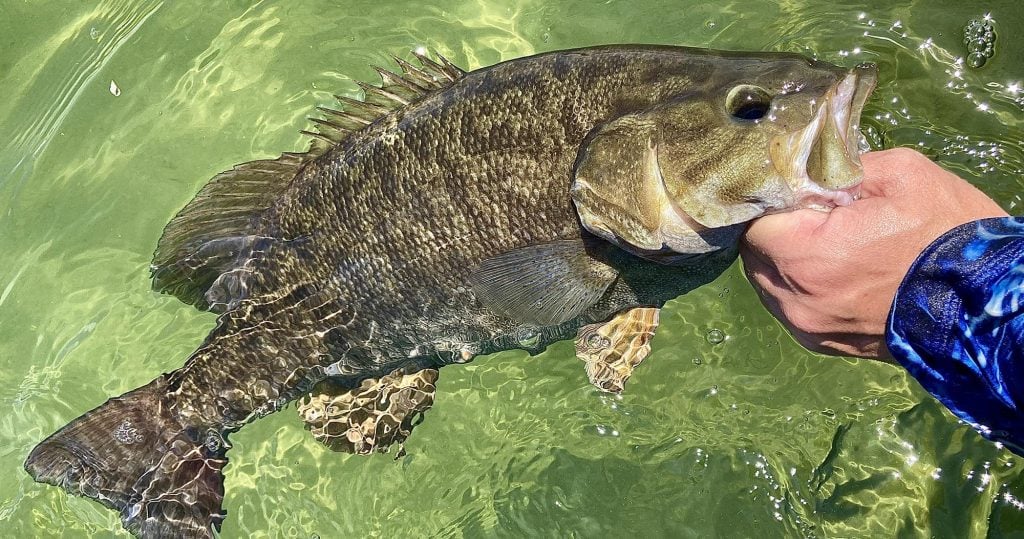
For the past five or six years, it has been my annual goal to catch a six-pound smallmouth bass on the fly. Some years, I was fortunate enough to hit that mark more than once. But there’s also a part of me that always wanted to achieve an IGFA World Record smallmouth on fly. As you will read in the story that follows, expanding my knowledge of my local fishery and adapting to adversity were both key to me eventually achieving, and surpassing, my goal of catching an IGFA World Record smallmouth.
In spring 2020, I began my pursuit of the IGFA Men’s 4-kg (8-lb) Tippet-Class World Record for smallmouth bass. My target weight was 5-pounds, 11-ounces (2.59-kg) which, according to the IGFA World Records database, was two ounces heavier than the standing record. During my years of fly fishing for smallmouth in the clear lakes of Emmet County, Michigan, I found the most reliable time to catch one is during the pre-spawn period in the spring, before surface water temperatures reach 60℉. So that’s when the quest began.

On my first attempt, I caught two quality fish that barely missed the mark. The first weighed 5-pounds, 8-ounces (2.5-kg) and the second was 5-pounds, 5-ounces (2.41-kg) --both shy of beating the record. Four days later a weather window presented ideal conditions for a second try. It was a strange day. When I arrived at the first prime area, the water was cloudy. We usually have excellent water clarity in most of Emmet County lakes, but that day visibility was poor amid easterly winds and run-off from recent rainfall. Poor clarity made fishing especially difficult, as I needed to see from a distance the deeper structures that big females like to sit on: rock piles, sunken wood, and dense vegetation. The fish are far too spread out on these large lakes to just start blind-casting with a fly rod.
Unexpectedly, I spotted a smudge below the surface very close to the boat that looked like a large smallie. I flipped my baitfish-pattern fly over with only a back-cast and it landed spot on. The smudge came to life and my heart started pounding. Would it strike the fly? With a flash of white, gills flared, and wham! She was hooked! The fish didn't put up quite the struggle I expected and I landed her quickly. I weighed her immediately on my certified scale: 5-pounds, 13-ounces (2.64-kg)-- just the fish I was looking for! Well, not exactly. It was the right fish, but the wrong line.

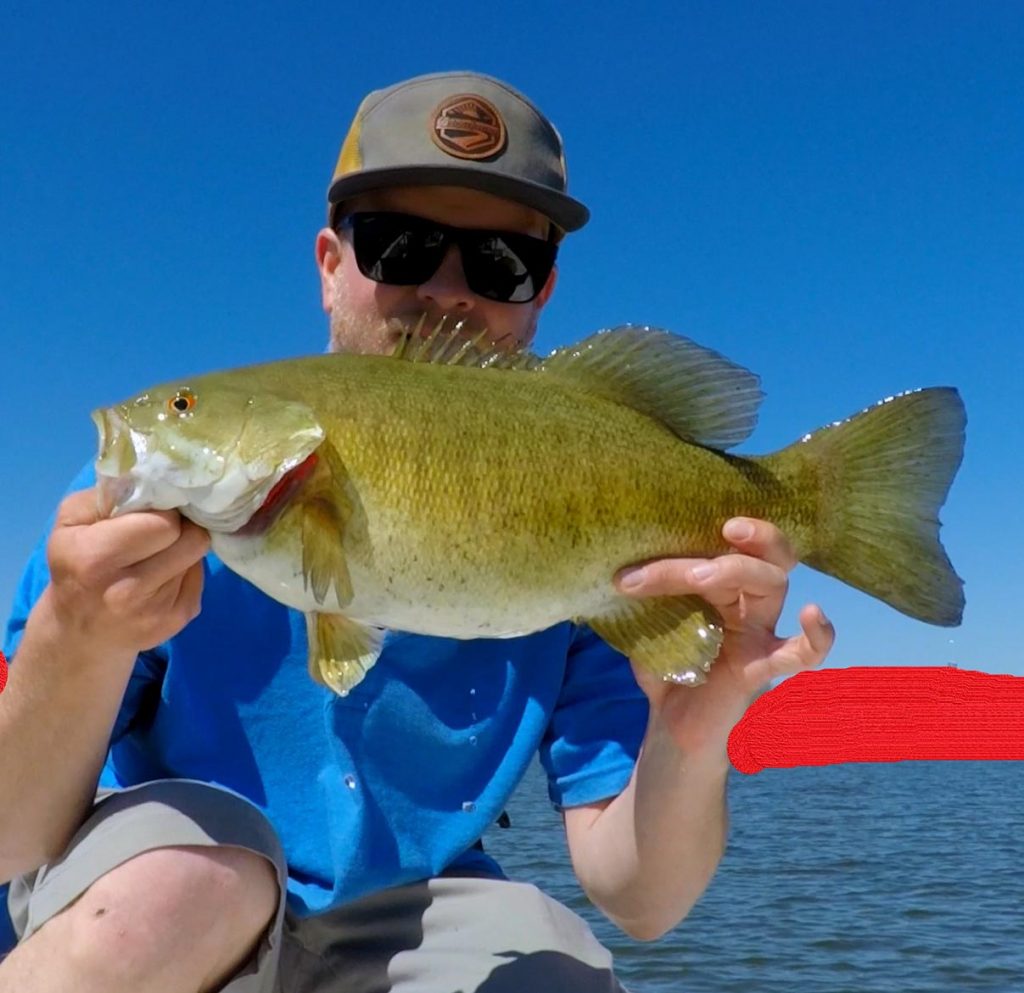
My application for an IGFA World Record in the Men’s 4 kg (8 lb) Tippet Class category was rejected because my tippet over-tested. Unfortunately, I had not been aware of the potential inconsistencies between the stated breaking strength of a spool of fishing line and its true breaking strength. In fact, line or tippet that over-tests is the number one reason for rejection of IGFA World Record applications. I learned from IGFA’s World Record Coordinator Nick Haddad that, with almost every major brand, lines test much stronger than what is stated on the spool. What a huge disappointment after I thought I had done everything right! To learn more about the line testing process and what it takes to meet the requirements for each tippet class category, read Nick Haddad’s Tippets Head to Head: How the IGFA tests tippet strength.
On my next record attempt, a brisk east wind and above-average temperatures persisted for four days. When I made it back out again, water temperatures were above 70℉ in some areas; way too warm for the big fish I needed. It looked like my world-record attempt window had closed and I would have to wait until fall or even the following year to get my next chance. Why hadn’t I pre-tested the tippet at IGFA headquarters, or fished an even lighter tippet than stated on the spool? Needless to say, I was frustrated, but my mind was still churning on how I could still reach my goal.
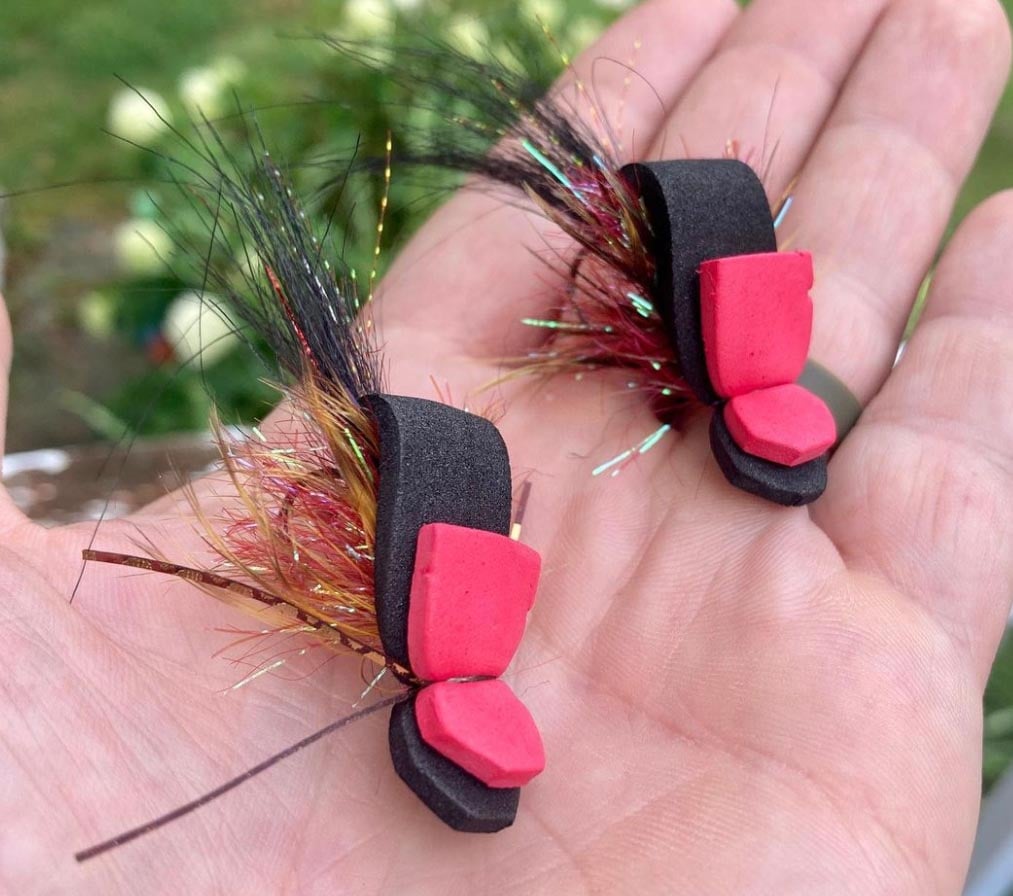
Immediately following post-spawn on the Great Lakes Basin, we enjoy a wonderful phenomenon called the Hex hatch. Slurping giant mayflies isn’t just for trout; many game fish species tune into the hatch. During this time, and into the warmer summer months, I’ve frequently observed smallmouth bass roaming the shallows, foraging for shiners, gobies, perch, sunfish, crayfish and other bait. As the water reaches its highest temperatures of the year, 75-80℉, the smallmouth's metabolism is also at its highest, often resulting in aggressive feeding behavior.
So, with these bits of knowledge in mind, I assembled a new game plan that began with me tying up my own version of a gurgler-style fly often used for mousing up big brown trout on the streams with my 5-weight. To my excitement, the pattern worked immediately, wonderfully, and consistently, and has become an extremely effective method for both smallies and largemouth. I used this method exclusively throughout the summer of 2020, and it paid major dividends this past August.
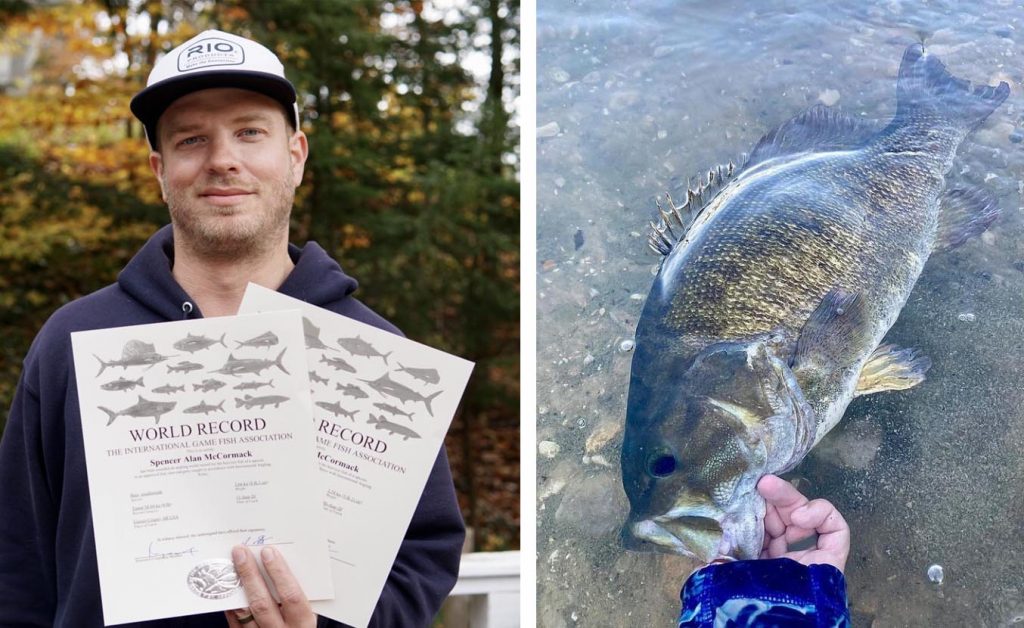
I was not expecting to catch two IGFA World Records for smallmouth bass in August. It was completely the opposite of what I had originally gone into this quest thinking. But, within the first week of the month, I caught a fish that hit the 5-pound, 11-ounce (2.59-kg) mark. And amazingly enough, just five days later, I caught a massive 8-pound, 1-ounce (3.66-kg) fish to beat the record I had just set! It was like hitting the winning numbers in the lottery. Both of these fish were sight fished in the shallows during the hottest times of the year and both ate the gurgler fly delivered on my lightweight 5-weight rod. But that was not the end!
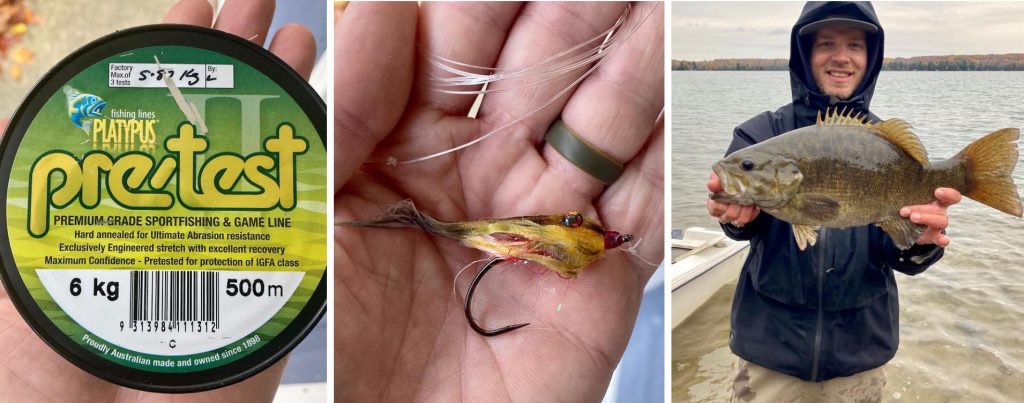
In late October, with the water at 44℉, I caught a smallmouth weighing 6 pounds, 5 ounces (2.87-kg)-- again with that 5-weight fly rod on a floating line, but using the same baitfish pattern I had used during the pre-spawn. I submitted that fish for the IGFA Men’s 6-kg (12-lb) Tippet Class World Record, which is still being reviewed. Three distinct times of year and three distinct temperature regimes, I caught World Record smallmouth on or near the surface.
While I had originally thought the spring pre-spawn was my only window of opportunity, I was delighted to learn that I could target World Record-class smallmouth bass almost year-round using one of the most fun presentations and styles in fly fishing. And without establishing the goal of catching an IGFA World Record smallmouth, I may have never known that! I’m happy to have accomplished and exceeded my goal, but I take equal satisfaction in knowing that this pursuit allowed me to further grow as an angler.
